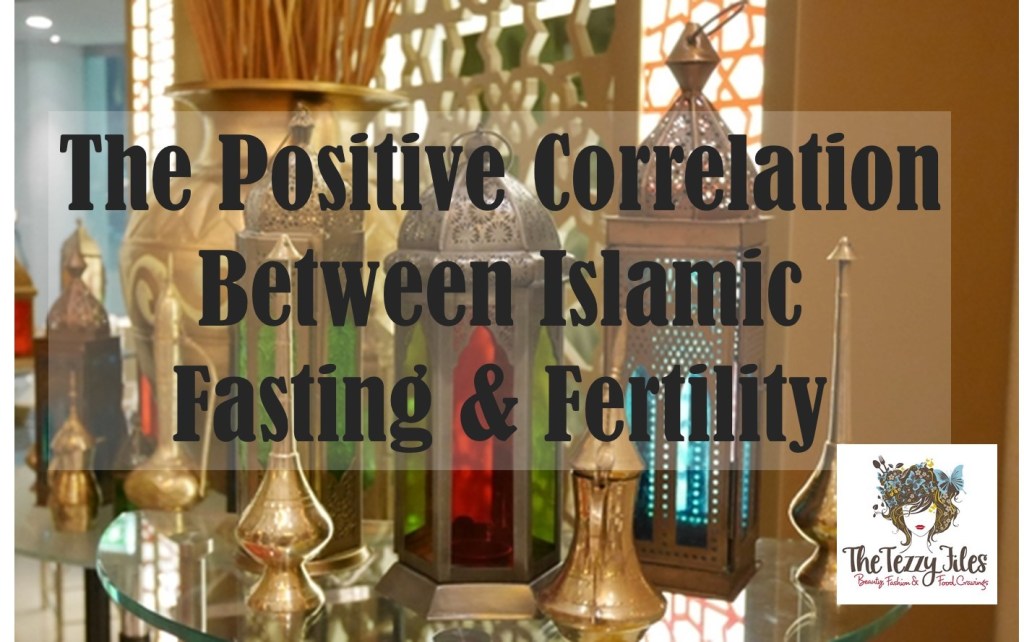For Non-Muslims, the notion of fasting from dawn to dusk sans any liquids can sound very daunting. As a practicing Muslim, I get asked about this all the time. The truth is our bodies are the most amazing, adaptable machines and ask any fasting muslim, it really does get easier by Day 2 itself.
Why do we do it? It is ordained by the Almighty for a number of reasons. It gives our bodies a much needed break (the idea of intermittent fasting is only just gaining popularity in mainstream media, but we have been doing it all along!), it helps us develop the virtue of patience and brotherhood, and brings the community together.
In the recent past, the evidence showcasing the endless benefits of fasting has been gaining momentum, and that would be a topic that would stretch across a number of blog posts. One of the lesser known benefits of Islamic fasting is the positive effect it has on fertility. Today’s guest post is by the very articulate Dr. Monikaa Chawla, a Reproductive endocrinologist and fertility specialist at Fakih IVF Abu Dhabi, who has been practicing the subspecialty for more than 16 years. Dr. Monikaa is not a Muslim and this is what makes her unbiased, scientifically backed reasonings behind the positive link of Islamic fasting and fertility a very interesting one! Read on for more.
Fasting for Fertility – By Dr. Monikaa Chawla
Islamic fasting is special because of how it corrects people’s lifestyle, it promotes health and boosts the spirituality of humans. Islam sees health and ‘well-being’ as much more than just bodily health, as well-being or tranquility requires a strong relationship with one’s spirituality, good physical health, mental happiness, a sense of purpose, good character, and relationships.
It’s important to understand the changes that happen in the body while fasting and how it adapts to that. Fasting in Ramadan is an example of intermittent fasting. As the Ramadan fast extends from dawn till dusk, there is ample opportunity to replenish energy stores at pre-dawn and dusk meals. This provides a progressive, gentle transition from using glucose to fat as the main source of energy, and prevents the breakdown of muscle for protein. The use of fat for energy aids weight loss, preserving the muscles, and in the long run reduces your cholesterol levels. In addition, weight loss results in better control of diabetes and reduces blood pressure. A detoxification process also seems to occur, as any toxins stored in the body’s fat are dissolved and removed from the body. After a few days of the fast, higher levels of certain hormones appear in the blood (endorphins), resulting in a better level of alertness and an overall feeling of general mental well-being.
Suhoor, the pre-dawn meal, should be a wholesome, moderate meal that is filling and provides enough energy for many hours. It is therefore particularly important to include slowly-digesting foods in the suhoor.
Iftar is the meal which breaks the day’s fast. This meal could include dates, following the Prophetic traditions. Dates will provide a refreshing burst of much-needed energy. Fruit juices will also have a similar, revitalizing effect. The meal should remain a meal and not become a feast! Try to minimize the rich, sugary dishes which are traditionally served.
Foods to avoid are the heavily-processed, fast-burning foods that contain refined carbohydrates in the form of sugar, white flour, etc., as well as, of course, too much fatty food (cakes, biscuits, chocolates and sweets). It may also be worth avoiding the caffeine content in drinks such as tea, coffee and cola. Caffeine is a diuretic and stimulates faster water loss through urination.
For couples who have been trying to conceive through in vitro fertilization (IVF) without success or have been in various forms of synthetic contraception, fasting might help improve results. Fasting pulls out excess or synthetic hormones, cleanses the liver, alkalizes the blood stream and reboots the natural hormonal process of the body. It allows for all the toxins to be removed from the cells, hormones to be rebalanced, the liver to metabolize any excess hormones floating around the body such as xenoestrogens and cortisol (stress hormone which can lead to inflammation, exhaustion, poor cellular function) which may be leading to infertility. Inflammation is decreased, all organs are regenerated, blood sugars are rebalanced, immune system is boosted, nervous system is rested and reproductive system becomes more balanced and ready.
Scientific data shows that adult onset caloric restriction prevents the age-related decline in oocyte [egg precursor cell] quality and quantity according to Jonathan Tilly, a reproductive biologist from Boston.
The effect of fasting on various male and female fertility hormones have been studied and found no difference or any adverse effects. Levels of some stress hormones in patients of polycystic ovaries like cortisol and nor adrenaline etc. reduce while fasting which is an advantage in these patients.
For male infertility, there were some suggestions that fasting improves the total sperm count, the gonadotrophic hormone levels, and the testosterone level in fertile males. Fasting does not either improve or decrease the seminal quality of azoospermics but may have some effect on oligozoospermics. There was a beneficial effect of the Ramadan fast on spermatogenesis, either via the hypothalamo-pituitary-testicular axis or by a direct effect on the testis.
Quick tips for Ramadan Fasting During IVF Treatment
- Take plenty of water and other clear non carbonated fluids during morning (Suhoor) and evening hours (Iftar). Add slices of strawberry, orange, lemon and mint to the water.
- AVOID caffeine, fizzy drinks and sugary fluids, sodas, decaffeinated tea and coffee.
- AVOID processed, spicy, fried and sugary foods.
- Go slow and start with light meals. Coconut-coated dates with laban, avocado juice with fruits or dried fruit or soups are the perfect choice of foods to opt for when you break your fast. A good mix of carbs, proteins, fruits and vegetables should be included in your meals.
- Vitamins like B COMPLEX supplements can be added to your daily routine.
- Seek medical advice if nausea, dizziness, heartburn etc. occur.
In summary, the month of Ramadan is a great opportunity to focus on bringing back a balanced and healthy lifestyle in your life. Through fasting you begin to learn how to manage your eating habits, how to improve self-control and discipline. This month requires you to challenge and control the digestive system, and by doing so you are able to break down and expel the accumulated toxins from your body. Fertility can actually be boosted by this practice and there is no contraindication to fertility treatments during this period. Simple modifications in the timings of medications and injections can help you rub this process smoothly with good results.
About Dr. Monikaa Chawla
Dr. Monikaa Chawla is a Reproductive endocrinologist and fertility specialist at Fakih IVF Abu Dhabi, practicing the subspecialty for more than 16 years. Dr. Monika is highly specialized in minimal access surgery (Laparoscopy and Hysteroscopy, diagnostic and operative) having trained at the Royal Free Hospital in London and Kiel University in Germany. Her research work has been published in 27 international and indexed journals and has presented at various international conferences. She completed her postgraduate award in Assisted Reproduction from Warwick University ,UK with thesis on ‘Time lapse technology and its current implications’. Her current publications and research work is focused on recurrent Implantation failures and time-lapse morphokinetics with preimplantation genetic screening.
Membership: A member of the American Society of Reproductive Medicine, the British Fertility Society and the American Association of Gynecology Laparoscopists.
Education: She acquired her MD in 1998 and was awarded the membership of the Royal College of Obstetricians and Gynecologists (MRCOG) in 2004. She went on to complete her fellowship in Reproductive medicine at the prestigious Guy and St. Thomas Hospital in London which is also the pioneer center for Pre-Implantation Diagnosis (PGD) in the UK.
Awards: Received Overseas Travel Fellowship through the Royal College of Obstetricians and Gynecologists, August 2003; the only candidate to be chosen for direct Registrar post sponsorship by RCOG from India based on clinical experience and research.









